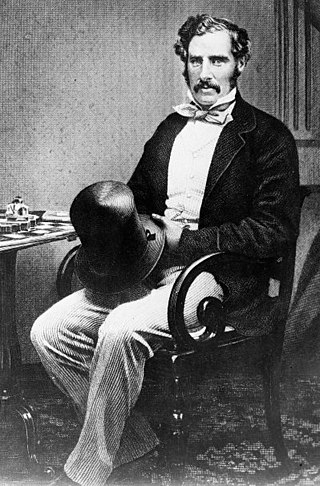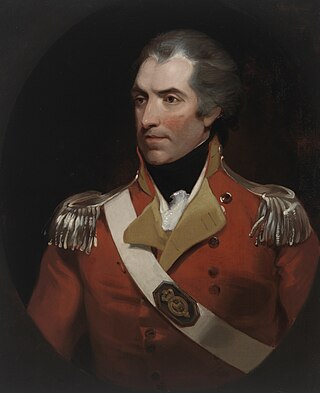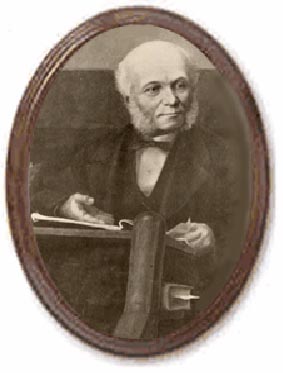
Andrew Geddes Bain, was a Cape Colony geologist, road engineer, palaeontologist and explorer.

Sir George Grey, KCB was a British soldier, explorer, colonial administrator and writer. He served in a succession of governing positions: Governor of South Australia, twice Governor of New Zealand, Governor of Cape Colony, and the 11th premier of New Zealand. He played a key role in the colonisation of New Zealand, and both the purchase and annexation of Māori land.

The Eastern Cape is one of the nine provinces of South Africa. Its capital is Bhisho, and its largest city is Gqeberha. Due to its climate and nineteenth-century towns, it is a common location for tourists. It is also known for having been home to many anti-apartheid activists, including Nelson Mandela.

Sir Andrew Smith was a British surgeon, explorer, ethnologist and zoologist. He is considered the father of zoology in South Africa having described many species across a wide range of groups in his major work, Illustrations of the Zoology of South Africa.

General Sir Richard Bourke, KCB was an Irish soldier, who served in the British Army and was Governor of New South Wales from 1831 to 1837. As a lifelong Whig (Liberal), he encouraged the emancipation of convicts and helped bring forward the ending of penal transportation to Australia. In this, he faced strong opposition from the landlord establishment and its press. He approved a new settlement on the Yarra River, and named it Melbourne, in honour of the incumbent British prime minister, Lord Melbourne.

Colonel William Paterson, FRS was a Scottish soldier, explorer, Lieutenant Governor and botanist best known for leading early settlement at Port Dalrymple in Tasmania. In 1795, Paterson gave an order that resulted in the massacre of a number of men, women and children, members of the Bediagal tribe.

Qonce, formerly King William's Town, is a town in the Eastern Cape province of South Africa along the banks of the Buffalo River. The town is about 60 kilometres (37 mi) northwest of the Indian Ocean port of East London. It has a population of around 35,000 inhabitants and forms part of the Buffalo City Metropolitan Municipality.

Beaufort West is a town in the Western Cape province in South Africa. It is the largest town in the arid Great Karoo region, and is known as the "Capital of the Karoo". It forms part of the Beaufort West Local Municipality, with 34,085 inhabitants in 2011.

John Philip, was a missionary in South Africa. Philip was born at Kirkcaldy, Fife, Scotland to a local schoolmaster. After starting as an apprentice to a linen draper in Leven, and working as a clerk in Dundee, he entered the Wesleyan theological college at Hoxton, and in 1804 was appointed minister of the first Scottish Congregational chapel in Aberdeen. On 24 September 1809 he married Jane Ross, the daughter of a prosperous Aberdeen engineer; they had seven children. His daughter, Elizabeth (Eliza), married John Fairbairn, the renowned educator, politician and financier, on 24 May 1831.

Sir Henry Barkly was a British politician, colonial governor and patron of the sciences.
The Herald was a morning – and later – evening broadsheet newspaper published in Melbourne, Australia, from 3 January 1840 to 5 October 1990. It later merged with its sister morning newspaper The Sun News-Pictorial to form the Herald-Sun.

John Fairbairn was a newspaper proprietor, educator, financier and politician of the Cape Colony.

Saul Solomon was an influential liberal politician of the Cape Colony, a British colony in what is now South Africa. Solomon was an important member of the movement for responsible government and an opponent of Lord Carnarvon's Confederation scheme.

John ("Jock") Paterson was a prominent politician and successful businessman of the Cape Colony, and had a great influence on the development of Port Elizabeth where he was based. He ran newspapers, established the Grey Institute and played a significant role in founding South Africa's Standard Bank.

Paterson is a settlement in Sarah Baartman District Municipality in the Eastern Cape province of South Africa. The town is located some 80 kilometres north-west of Alexandria and 21 kilometres north of Nanaga on the N10 National Route.

Robert Godlonton (1794–1884) was an influential politician of the Cape Colony. He was an 1820 Settler, who developed the press of the Eastern Cape and led the Eastern Cape separatist movement as a representative in the Cape's Legislative Council.

James Bisset was an architect and civil engineer of the Cape Colony, responsible for many of the Cape's early buildings and communications infrastructure. He was also Mayor of Wynberg, South Africa.
Francis Joseph Dormer was an influential journalist and newspaper editor in southern Africa.
The following is a timeline of the history of Gqeberha in the Nelson Mandela Bay Municipality, Eastern Cape province, South Africa.

The Eastern Province Separatist League was a loose political movement of the 19th century Cape Colony. It fought not for independence, but for a separate colony in the eastern half of the Cape Colony independent from the Cape government, with a more restrictive political system and an expansionist policy eastwards against the remaining independent Xhosa states. It was crushed in the 1870s, and many of its members later moved to the new pro-imperialist, Rhodesian “progressive party”.

















